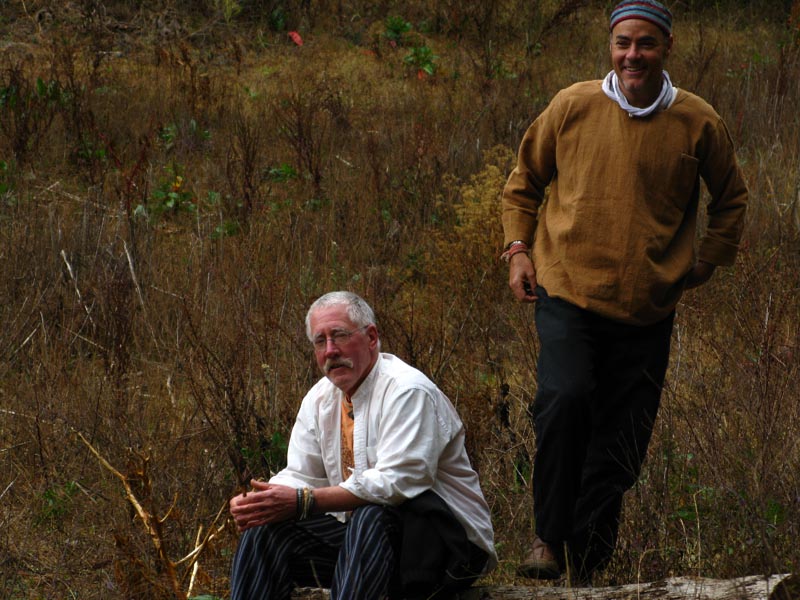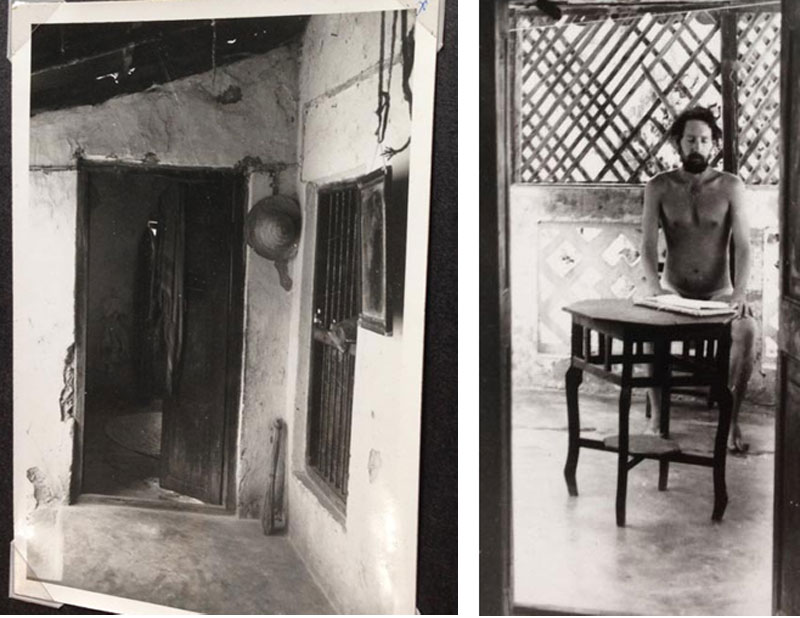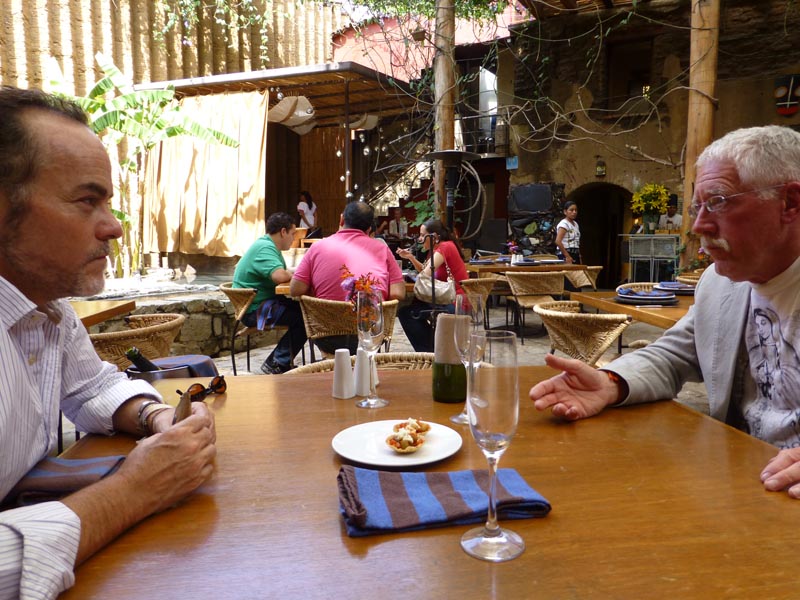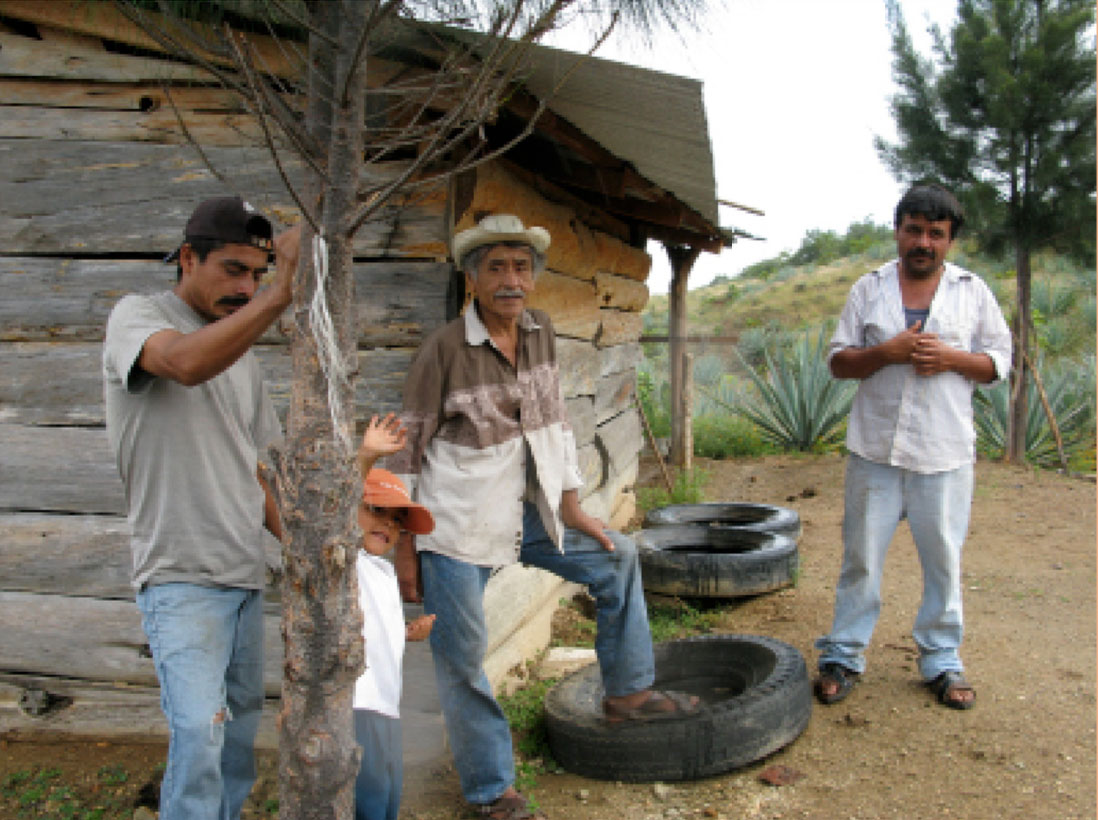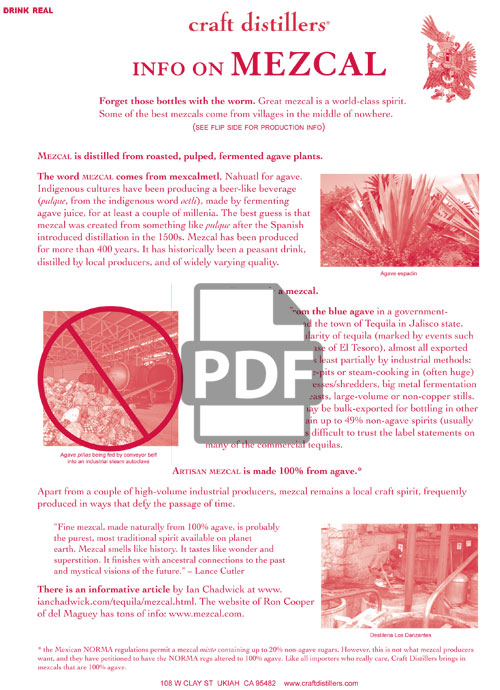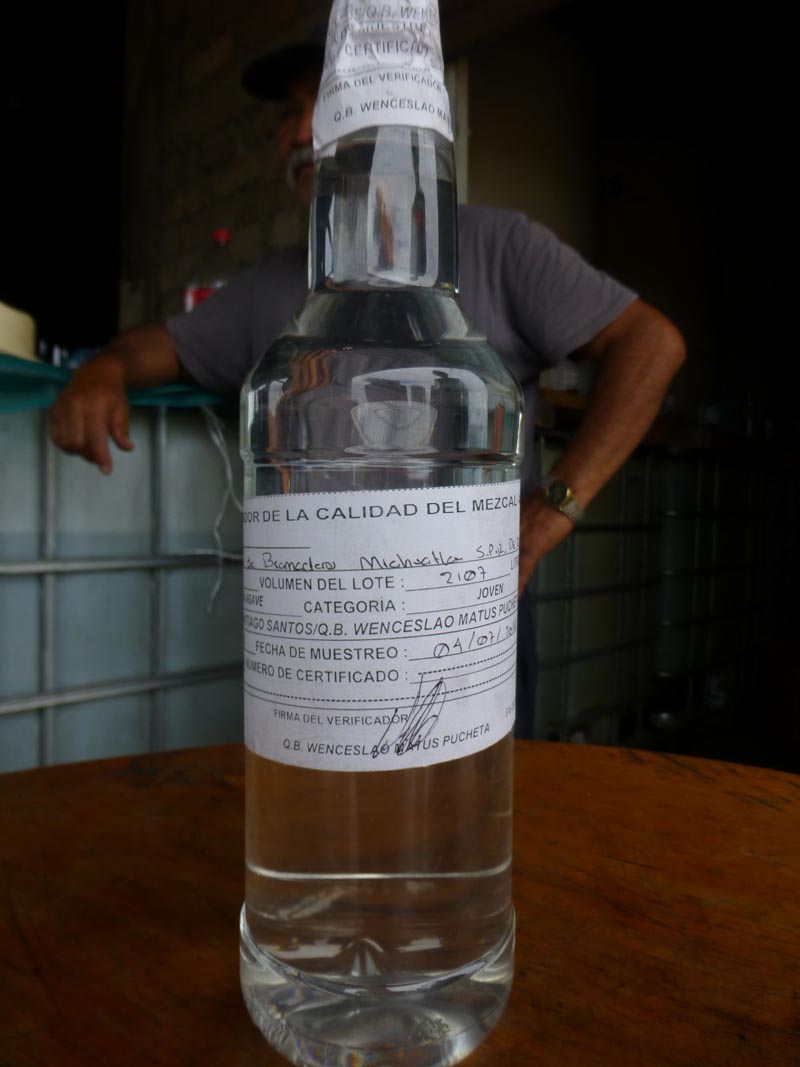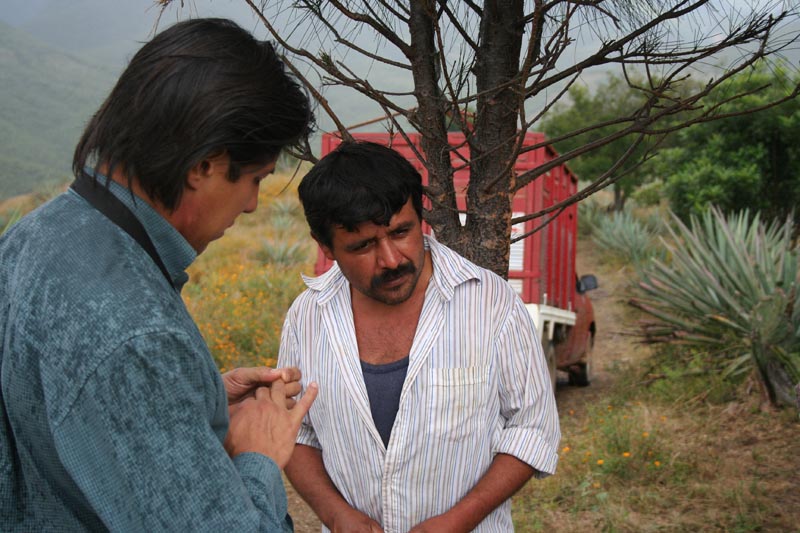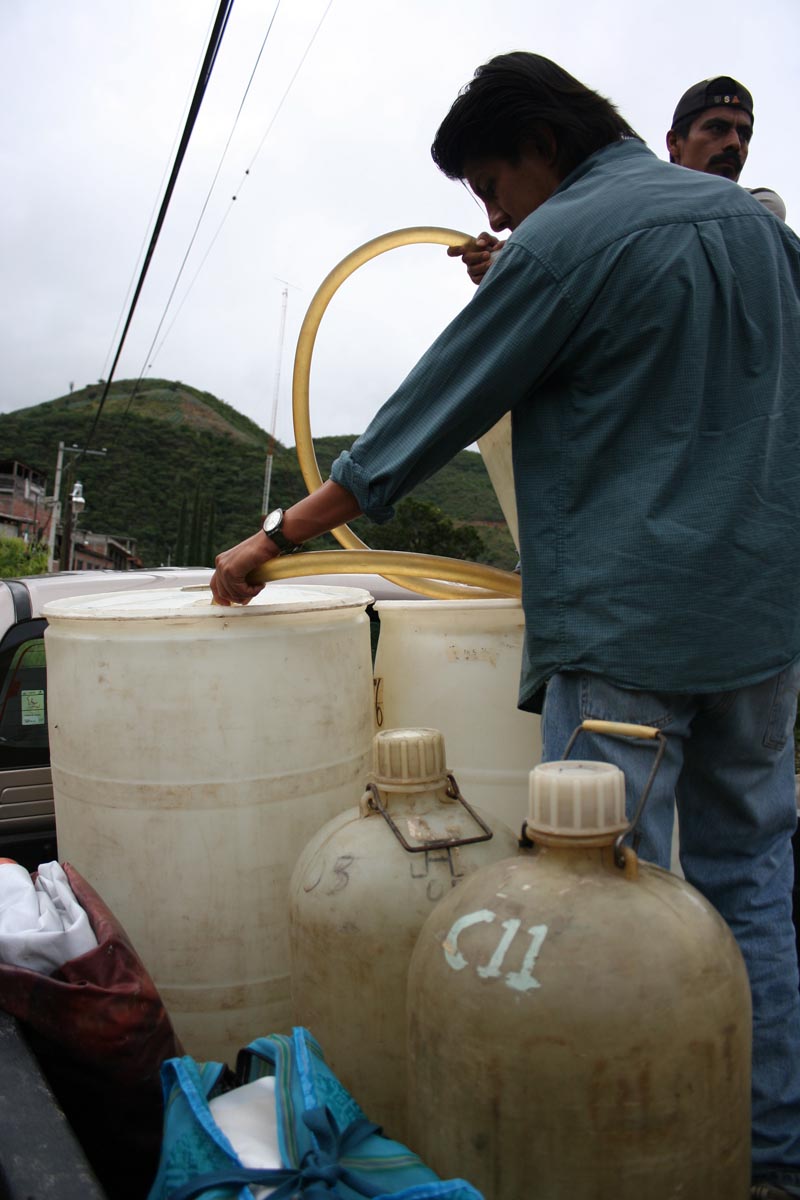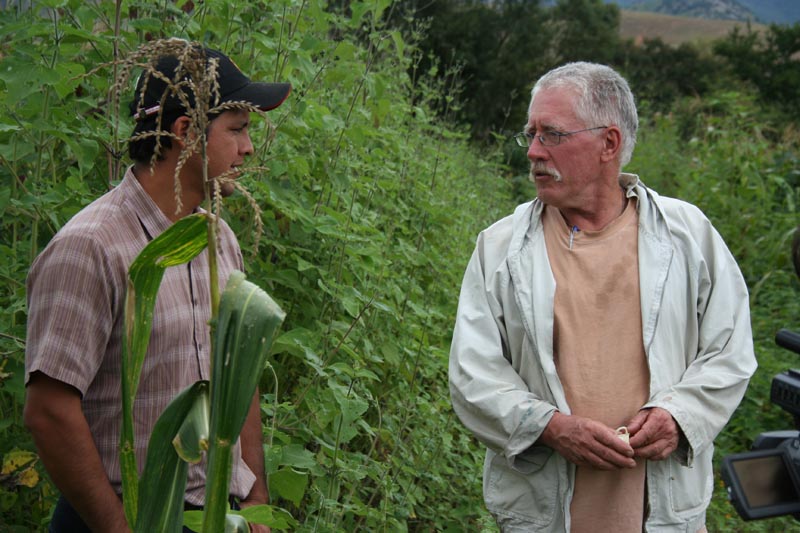Ron Cooper of Del Maguey introduced Jaime Muñoz of Los Danzantes to Ansley Coale at the Aspen festival in 2004. Craft Distillers started bringing in Los Nahuales (everything exactly the same as Los Danzantes except the name, because of US trademark issues) right away, but there was a lot of internal work on both sides before we could bring in commercial quantities of Alipús (2011).
The essence of the Alipús project is social: to create and sell commercial quantities of authentic artisanal Mezcal so that both the distillers’ way of working and their way of living could be sufficiently protected from the powerful forces of modernization. It will take long, hard, and concerted efforts to keep artisanal mezcal from being forced into the modes of commercialization that took the heart out of bourbon, cognac, tequila….
These ideas have deep roots on both sides. Ansley has spent considerable time living/traveling in third-world countries, once apprenticing himself for 9 months to a dhow-builder on the island of Lamu, exploring an interest in the transition from old to new ways and its effects on how people live, or, better, on how they are.
Jaime and his brother Gustavo have dedicated most of their working lives to ways of approaching Mexico’s profound gulf between its colonial-derived ruling society and its millions of indigenous peoples.
Ansley co-founded Germain-Robin (1982) and founded Craft Distillers (2003) to preserve old ways of working. The brothers Muñoz founded several restaurants with the purpose of integrating regional indigenous cooking into fine cuisine, deliberately sourcing ingredients from local suppliers. They turned to mezcal to provide indigenous spirits for their restaurants, renovating a decrepit destilería in Santiago Matatlan in 1997.
Preservation is not about museums, where you visit the work of the dead or the hugely famous. True preservation is finding a way to provide a livelihood for humans who embody traditional ways of working and living so that they have the resources, both fiscal and psychological, to integrate their way of life into the modern world in ways that do not destroy important aspects of how they are living right now or the integrity of what they produce. It’s not easy.
Our approach is: Let’s help preserve a way of working that is by its nature deeply integrated into a person’s way of living. If we can enable a family distillery to make enough money from what they already do – while helping to preserve that work’s essential character – to prevent their children from, say, going to Los Angeles to work as gardeners, to provide a younger generation with a sufficient livelihood so that they can remain in the pueblo, remain with their families, do the work they grew up inside, which is what they want to do…. If we can do this, we give them a chance to make a humanly satisfying acculturation to the modern world, one that does not abandon what is meaningful about how they are living now. The frenzy with which young Americans pursue the authentic shows how important this is.
For Craft Distillers, it means basing our sales and marketing on the aspects of the artisanal work that we think are essential to preserve. It means talking straightforwardly and truthfully about what is special about artisan Mezcals, sharing it instead of hyping it. It means living with lower profit margins so that the family distillers get a big enough slice of the pie. It means living with slow growth in the market because of not having enough resources. It means working with patience with distributors and accounts who have not yet figured out how to do business with products that don’t come from huge international suppliers and marketers
For Los Danzantes, it is the slow and patient human interaction with the distillers. Mezcal for export must satisfy stringent government regulation, filing complex forms, paying for visits by the regulators. Export mezcal must be distilled in specific ways (e.g, not allowing reintroduction of heads from the first run). Mezcal must be produced in quantities and on a schedule determined by the needs of Craft Distillers’ and Los Danzantes’ distributors. A steady increase in production must be financed. Methods of yeast inoculation, ways of making cuts, can be improved. It is not easy to persuade an indigenous distiller to learn new ways. It takes about 2 years to bring a new Alipús producer on line.
Much of this was/is the responsibility of first Hector Vasquez and now Karina Abad. They are both remarkable human beings. They love what they do and they love who they work with. They have driven endless miles on terrible roads, worked long hours, patiently led indigenous distillers to make important changes.
Of all the work done to make Alipús happen, in real time, in the real world, the work of Karina and Hector has been the most important.
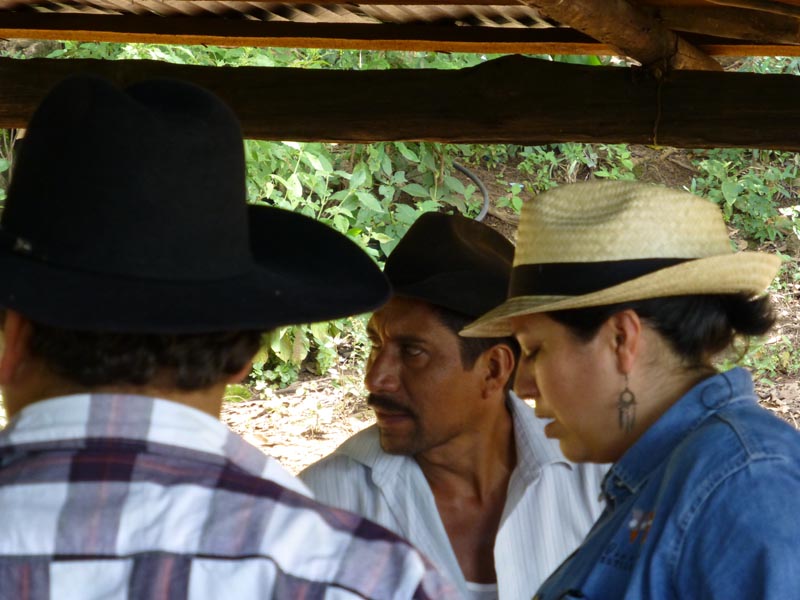
In the end, it comes down to respect, to treating others the way you would like best to be treated yourself, to taking the time and having the willingness to understand cultural differences, as important for Los Danzantes in dealing with the destilerías as for the two of us in dealing with one another. If we do this right, we will have preserved something worth preserving… and had the profound pleasure of working with other humans at some very deep levels.
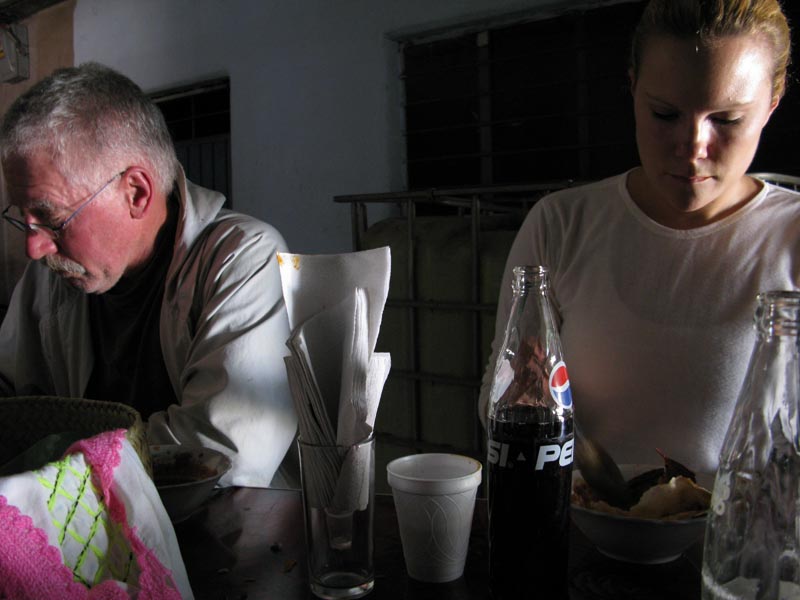
Photographs by Katherine Lewis, Cynthia Coale, and a tourist.

